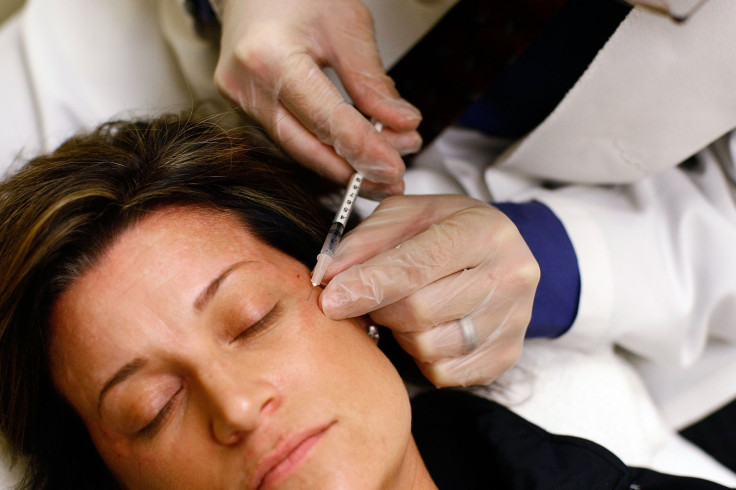Silicone Injections Can Lead To Fatal Injuries, FDA Warns

The Food and Drug Administration on Tuesday issued an advisory warning that urged the public to abstain from using silicone injections in plastic surgery procedures. The safety communication was directed towards medical professionals, patients interested in plastic surgery and individuals who previously received silicone injections.
Injectable silicone, which is an oily substance any liquid polymerized siloxane, is primarily used for lubrication and for caulking. FDA hasn't legalized the use of silicone for body contouring or enhancement, including breast augmentations and butt implants. Injectable silicone is only legally allowed to be used for intraocular ophthalmic, a sterile cleansing solution that can be used inside the eye.
The FDA claims that the use of injectable silicone can lead to infections, ongoing pain and serious injuries, which include scarring and permanent disfigurement. Fatal injuries are also a possible outcome.
"Injectable silicone is permanent, with side effects that can occur right after the injection and up to years after treatment," the FDA wrote in a Tuesday news release. "Silicone spreads and migrates easily inside the body, which may worsen adverse events and make surgical attempts to remove the silicone oil more difficult or impossible."
"Silicone, when injected into areas with many blood vessels such as the buttocks, can travel to other parts of the body and block blood vessels in the lungs, heart, or brain. This can result in permanent damage to those tissues and lead to stroke or death," the advisory continued.
Injectable silicone has been associated with multiple deaths. A North Carolina man was sentenced to 14 years in prison in 2016 after giving a Maryland woman butt implants with silicone injections. A New York woman was also arrested on manslaughter charges in 2013 after illegally using silicone for butt implants on a mother of two.
These deaths are linked to "plumping," which is the unauthorized practice of injecting silicone into the body. The FDA recognizes that "unqualified providers posing as doctors or licensed healthcare practitioners" have been guilty of this practice, but advises all to avoid all unapproved uses of silicone injections because of the potential health repercussions.
"Whenever our body comes into contact with silicone, it recognizes it as a foreign material and tries to block it off by forming a capsule around it," Tavallali Plastic Surgery, a full range of cosmetic surgery clinic in Virginia, wrote on its website. "These capsules can be large, such as those around breast implants, or tiny, such as those around the beads of silicone injections into the face."
"Patients with silicone injections for breast augmentation or buttock enlargements seem to do the worst," the clinic added.
© Copyright IBTimes 2025. All rights reserved.






















